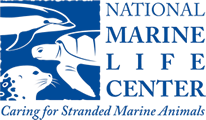Northern Red-Bellied Cooters release approaching- Getting a “Head Start”!
With all the diverse wildlife in Massachusetts, the Northern red-bellied cooter is one of the most beautiful…and endangered! The Northern red-bellied cooter population of Massachusetts lives more than 250 miles from the rest of the species who inhabit areas of Maryland, Virginia and North Carolina. Listed under the Endangered Species Act since 1980. In 1984, due to habitat loss, predation and pollution, a mere 300 remained in Northern ecosystems (http://southshorenaturalsciencecenter.org/museum/special-exhibits/).
 Thanks to the Head-Start program, these turtles have rebounded. The Head-Start program works with local conservation organizations, such as NMLC, who welcome hatchlings in the fall and provide warm water and food for 8 months to promote growth among the turtles. Kept in 82 – 86 degree tank, they are provided with as much romaine and red leaf lettuce as they will eat. When they are released back to their natural habitats in early summer, chance of survival is increased due to weight and development gained in captivity. Survival can increase from 1% to over 70%! Almost 3,500 turtles have been released since 1984. Although “head-starting” is crucial to the cooter’s survival, habitat protection is key for long-term success.
Thanks to the Head-Start program, these turtles have rebounded. The Head-Start program works with local conservation organizations, such as NMLC, who welcome hatchlings in the fall and provide warm water and food for 8 months to promote growth among the turtles. Kept in 82 – 86 degree tank, they are provided with as much romaine and red leaf lettuce as they will eat. When they are released back to their natural habitats in early summer, chance of survival is increased due to weight and development gained in captivity. Survival can increase from 1% to over 70%! Almost 3,500 turtles have been released since 1984. Although “head-starting” is crucial to the cooter’s survival, habitat protection is key for long-term success.
Northern red-bellied cooters have about a 90% mortality rate in the first year of their lives. The head start program allows them to grow 3-4 times the size of a wild turtle in the same time period and therefore be less vulnerable to predators upon release in the spring. The National Marine Life Center has been participating in the program since 2006 and has successfully released 68 hatchlings.

Upon arrival and before release, they are weighed, measured and photographed for our records. Each turtle has a unique pattern on it’s plastron (the underside of the shell), helping us to distinguish them. The turtles must measure at least 85mm to be eligible for release.
The red-bellied cooters have been with NMLC since the fall, and soon it will be time to release them, seeing them off into the freshwater habitats of Southern Massachusetts. The location has not officially been released, but within the next few weeks (or even sooner), these developed turtles will set off back into the wild.
It is the first year in which NMLC is hosting the official Mass Wildlife Red Bellied Cooter Turn-in event. The turn -in will be held on Thursday May 30th in our Marine Animal Discovery Center and classroom. All of the organizations that participate in the headstart program will come together and turn their hatchlings back over to the state to be prepared for release. Over 100 turtles will be congregated to be weighted, measured, notched with a unique identification pattern, and micro-chipped. Representatives from each group will meet to discuss obstacles faced this year and improvements we can make to the program. NMLC Veterinarian Dr. Willaims will present on Metobolic Bone Disease and fungal infections , two of the most common complications seen in the program. NMLC is excited and honored to be hosting the culmination of this years efforts.
The release date and site for this year’s headstart class has not yet been disclosed by the state biologists. Stay tuned to our website for this announcement very soon. The public is welcome to attend, and staff from NMLC will be at the site with a booth to answer your questions about our facility and the headstart program. Witnessing such a successful growth in an endangered species is rare and demonstrative of the importance of organizations within the headstart program.
Check out some of these great websites for more information on the red-bellied cooter:
http://www.fws.gov/northeast/ecologicalservices/turtle/pdf/NorthernRedBelliedCooter.pdf
http://southshorenaturalsciencecenter.org/museum/special-exhibits/
And stay tuned for updates on a final release location and date!

